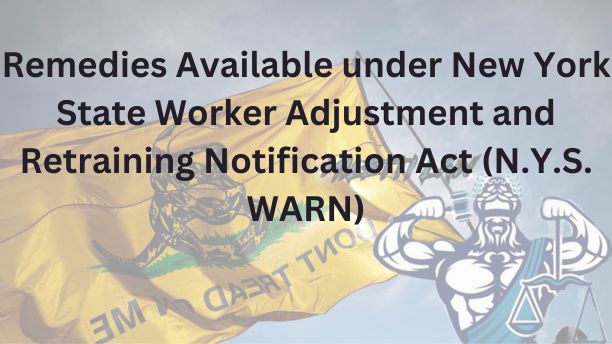Here at the Law Office of Vincent Miletti, Esq. and the home of the #UnusuallyMotivated movement, we take pride as a resilient and dependable legal services firm, providing such services in both a traditional and online, web-based environment. With mastered specialization in areas such as Employment and Labor Law, Intellectual Property (IP) (trademark, copyright, patent), Entertainment Law, and e-Commerce (Supply Chain, Distribution, Fulfillment, Standard Legal & Regulatory), we provide a range of legal services including, but not limited to traditional legal representation (litigation, mediation, arbitration, opinion letters and advisory), non-litigated business legal representation and legal counsel, and unique, online legal services such as smart forms, mobile training, legal marketing and development.
Still, we, here at Miletti Law®, feel obligated to enlighten, educate, and create awareness, free of charge, about how these issues and many others affect our unusually motivated® readers and/or their businesses. Accordingly, in order to achieve this goal, we have committed ourselves to creating authoritative, trustworthy, & distinctive content, which looks to not only educate, but also deliver in a manner that only Miletti Law® can. Usually, this content is featured as videos posted on our YouTube Channel https://www.youtube.com/channel/UCtvUryqkkMAJLwrLu2BBt6w and blogs that are published on our website WWW.MILETTILAW.COM. With that, the ball is in your court and you have an effortless obligation to subscribe to the channel and sign up for the Newsletter on the website, which encompasses the best way to ensure that you stay in the loop and benefit from the knowledge bombs that we drop here!
To achieve our goal of keeping you informed, this blog is Part B of Part XXII and an update of our series on federal laws that apply to workplace harassment, discrimination, & retaliation in New York. In Part A, we provided you with an overview of the “Statute of Limitations” under several applicable federal laws. Without changing lanes, we now look into other federal laws and the “Statute of Limitations” they provide.
Statute of Limitations under Federal Laws Applicable to Workplace Harassment, Discrimination, & Retaliation in New York
In Part A, we mentioned that the law provides a specific period in which legal proceedings have to be initiated, usually from the date of an alleged offense took place. The statute of limitations is a law that sets such a maximum amount of time. Part B provides an overview of the “Statute of Limitations,” as provided in other federal laws applicable to workplace harassment, discrimination, & retaliation in New York.
Section 1981
Pursuant to 28 U.S.C. § 1658(a), individuals have up to 4 years after the alleged violation took place to bring a lawsuit under Section 1981.
Patient Protection and Affordable Care Act (ACA)
Pursuant to 29 C.F.R. § 1984.103(d), an individual has up to 180 days to submit a written or verbal complaint with OSHA (Occupational Safety and Health Administration) if such a person believes that they suffered retaliation prohibited under the ACA. Accordingly, pursuant to 29 C.F.R. § 1984.106, an employee and/or employee may seek a full hearing before the Department of Labor’s administrative law judge (ALJ) within 30 days after a preliminary order and/or findings has been issued by OSHA. Then, the party may proceed to the DOL’s Administrative Review Board (ARB) and seek to appeal the ALJ’s ruling within 14 days after the ruling is received.
Family and Medical Leave Act (FMLA)
Under the FMLA, individuals have 2 years to file a complaint of alleged FMLA violation, or 3 years for willful violations, with any federal or state court of competent jurisdiction or with the Department of Labor. However, in order to recover damages under the FMLA, a civil action can be brought on behalf of employees by the Secretary of Labor.
Immigration Reform and Control Act (IRCA)
Pursuant to 28 C.F.R. § 44.304(b)or 8 U.S.C. § 1324b(d)(3), after the alleged unfair immigration-related employment practice has taken place, the IRCA provides 180 calendar days for an officer of the Department of Homeland Security (DHS) or the aggrieved party, or their authorized representative(s), to file a charge with the Office of Special Counsel (OSC). In turn, the OSC is required to determine whether it would file a complaint before an administrative law judge (ALJ) within 120 days after receiving the discrimination charge. Pursuant to 8 U.S.C. § 1324b(i)(1), if a person wishes to have the final order issued by an ALJ to be reviewed, such an individual has 60 days to do so. However, this must be done in the appropriate U.S. court of appeals for the circuit in which (1) the employer operates the business or resides and (2) the violation is alleged to have taken place.
Uniformed Services Employment and Reemployment Rights Act (USERRA)
While the application of any state statute of limitations is precluded under this law, there is no statute of limitations under USERRA. However, following due process, a general federal statute of limitations of four years has been held by the Fourth Circuit in the past. However, pursuant to 20 C.F.R. § 1002.311, the courts have recognized the availability of the equitable doctrine of laches to bar a claim under USERRA if an individual unreasonably delays asserting their rights, and prejudice to the employer results from such unreasonable delay.
Employee Retirement Income Security Act (ERISA)
There is no statute of limitations for Section 510 claims provided by ERISA. Instead, courts consider the provision for bringing wrongful discharge or employment discrimination claims and then apply it as the most analogous state law statute of limitations. Therefore, in order to identify the applicable statute of limitations, an individual should consult the decisions of federal courts sitting in the relevant state.
Genetic Information Nondiscrimination Act of 2008 (GINA)
Under GINA, individuals have 180 days after the occurrence of the alleged unlawful act or 300 days, in the case that a law prohibiting employment discrimination on a comparable basis is being enforced by a local or state law, to file a charge with the EEOC. Accordingly, a civil action should be filed within 90 days after a Notice of right-to-sue has been issued by the Equal Employment Opportunity Commission (EEOC).
Be on the look for Part XXIII, in which we will hammer on the “Recovery of Damages and Penalties” under these federal laws that apply to workplace harassment, discrimination, & retaliation in New York.
Until then, stay tuned for more legal guidance, training, and counsel. In the interim, reach us with questions or comments on our website at the Contact Us page!
Always rising above the bar,
Isaac T.,
Legal Writer & Author.
 314-648-2586
314-648-2586 CALL US NOW
CALL US NOW








